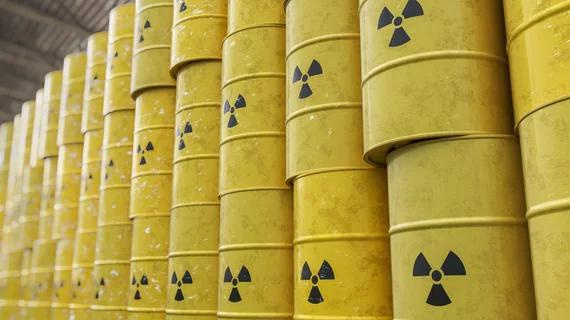US waives ban on uranium exports used to produce Mo-99
The U.S. Department of Energy has delayed a ban on licenses needed to export uranium used to make medical isotopes such as molybdenum-99 (Mo-99).
According to Jan. 7 reporting from Reuters, the U.S. has postponed the ban for two years. Secretary of Energy Dan Brouillette said the department found that global supplies of a substance made from highly enriched uranium used to create isotopes weren’t sufficient to meet the needs of U.S. patients, according to a Jan. 2 letter obtained by Reuters.
Those opposed, however, claim the decision hurts companies moving toward creating isotopes without highly enriched uranium and increases the risk that the materials could end up in the wrong hands.
“It’s irresponsible and unnecessary,” Alan Kuperman, founding coordinator of the Nuclear Proliferation Prevention Project, told Reuters.
A number of companies, including SHINE Medical Technologies and NorthStar Medical Radioisotopes, have committed to producing a domestic supply of non-uranium based Mo-99. In July of last year, the DOE handed out four cooperative agreements for such production to establish a U.S.-based supply of the isotope used in many cancer imaging methods.
Read the entire story below.

